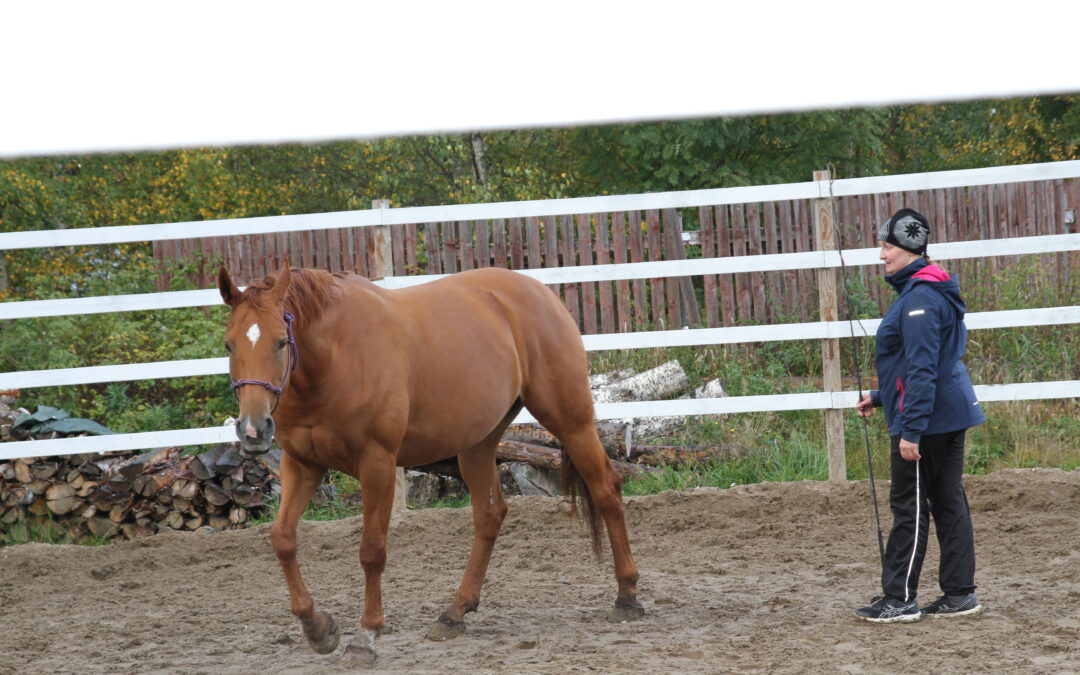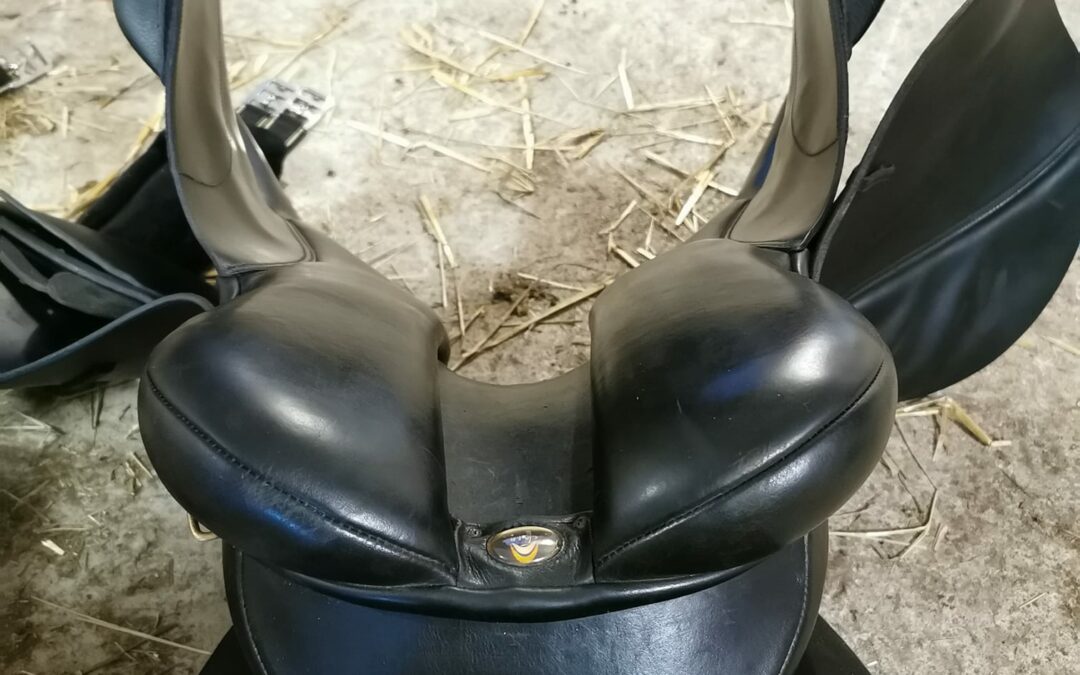I consider relaxation important in the training of a young horse. It does not mean that the horse has to be completely relaxed all the time, but that in those matters where it is not yet relaxed, he is worked towards relaxation and progress is made so that the tension does not grow big. Even a young horse should not have to be stressed and excited every day. Especially when there are many things we can do for the horse's relaxation. Relaxation also brings safety, while a tense horse can be dangerous, learns less desirable things and learns to associate tension with taught things. Relaxed horse learns the best those things we like them to learn. Often things thought of as "normal" are things that people don't consciously try to change. I mean, when you think something is normal, you don't need to do anything about it. Like things that young horses buck at first with a ride or are tense at first. It's just the way it is! The solution can then be, for example, giving time, a vacation, or simply trying to get along with the behavior in question. Or put a harder equipment on, tie the horse with training aids, etc. With these methods, the root causes remain uncorrected and the situation does not improve once and for all. Often it even gets worse and the horse tries to tell you more strongly that everything is not ok. Help me. Others horses give up and try to do it despite the discomfort. Although, for example, bucking with a rider at the beginning of a young horse's training is normal behavior in itself (the horse also bucks when he is free), it does not have to be part of the young horse's training. It is extremely rare that during my own training a young horse would buck with a rider. In those rare cases this has happened, some pain has been found to be the cause, which the horse has told by its behavior. Most of the time, this behavior is caused by discomfort, pain, tension or fear. There can be many reasons for this. Inappropriate equipment, inconsistent rider, too fast increasing pressure, too strong aids, pulling on the reins, too strong a rein contact, changing teeth, growing pains, stomach problems or other pains, hard aids or misuse of aids, especially with a young horse advancing too fast, too little desensitizing, teaching things in too big pieces, ignoring a little tension and moving forward regardless. When training a young horse, it is important for me to know what to do if I run into problems. How to avoid problems, how to fix them and what behavior can tell about pain. Because every individual is so different, it's worth having different tools and remedies. Although many kinds of behavior are normal for a horse, it is worth thinking about what kind of behavior and what kind of state of mind you want to strengthen in your own horse. If the horse has unwanted behavior something should be done about it so that one day the unwanted behavior will no longer exist. There is only a cooperative and willing horse and human who communicate with each other in a language that both understand. Relaxation, on the other hand, does not mean laziness. A horse that is relaxed, focused on people and responsive to small aids is one that is comfortable to do things with and that likes to do things with people. Many things can be difficult with a tense, stressed, instinctive horse, and injuries occur much more easily. And a horse in such a state of mind is not very happy or very nice to work with. It is good to know that the horse's state of mind can be changed. A person can influence it a lot. For better or for worse. It is especially important for a young horse to be aware of this, because it is easier to create a good foundation at a young age instead of trying to fix it later. Of course, the repair can be done later, but it may require more time and effort. It is also good to know that problem behavior does not necessarily go away completely, unless the owner knows how to maintain the desired behavior. It's our responsibility to train horses and make them relaxed in their lives with us. Also remember that it's never too late to change the way you've been going. Sometimes I myself have to think about how it would be good to proceed with this particular horse, so that it could remain as relaxed as possible. Sometimes the circumstances are changed, sometimes the training method. I'm learning new things all the time. The important thing is that you are ready to change your ways of doing things and learn new things, for the good of the horse.

After a holiday..
I usually longe or work in liberty in the round pen with horses if they have had some holiday. Like now, when I was sick and haven't been able to ride Morfeus in two weeks. Especially when I have a young horse that has not had so much experience yet. This way I avoid...

